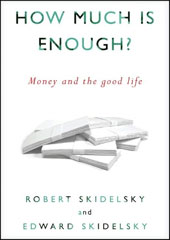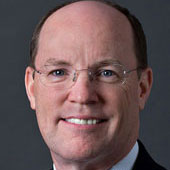Beyond LIBOR: Derivatives as WMD on the American People
Why should derivatives be moved out of the dark of over-the-counter markets into the brighter light of exchanges?
July 24, 2012
No one can deny that the unregulated and nontransparent derivatives markets, conducted almost entirely over the counter, were a central cause of the financial collapse and economic crisis that began in the United States in 2007.
As the ongoing eurozone crisis shows, allowing major financial institutions to engage in derivatives activities of unknown amounts — with unseen risks, often even to the institutions themselves as well as the regulators and the public — can cause the entire financial system to collapse.
In a world where major banks evidently conspired to collude even on relatively straightforward items such as setting the daily LIBOR interest rate, which cheated hundreds of millions of people out of massive amounts of money, there can be no doubt that something as complex as derivatives must be regulated and transparent.
Derivatives must be moved from the dark, over-the-counter markets to the brighter light of being traded on exchanges, ideally, or, at a minimum, to clearing houses and execution facilities. Collateral and margin must be required and counterparty concentration must be limited, and trade reporting must convey meaningful information in real time.
Warren Buffett has suggested that financial institutions dealing with derivatives have the same potential for economic destructiveness as nations and non-state actors who are proliferating weapons of mass destruction.
As demonstrated by the economic wreckage spread across the country from the financial collapse and economic crisis, we need to treat banks (and other financial market participants dealing with them) as we treat those who handle nuclear weapons: strong, clear laws and rules that cannot be evaded or gamed with, lots of police keeping an eye on them, and emergency responses ready in the event of an accident.
It follows that the rules for implementing business conduct standards must be strong so that conflicts of interest and other abuses that destroy the integrity of the marketplace — and kill investor confidence in the markets — are limited to the maximum possible extent.
These reforms are going to cost money. But contrary to self-interested claims, they will not cost more money than the current system. Currently, these costs are hidden, embedded or shifted to society.
The costs of risky, unregulated derivatives trading became apparent to everyone in the fall of 2008, but those costs were shifted to society rather than born by financial market participants.
The financial reform and Wall Street re-regulation law shifts the costs of doing business rightfully back to where they belong — to market participants. This will reduce risky conduct and thereby reduce the risk of future crises and bailouts.
Many financial firms claimed that forcing derivatives to trade in the light of day on open exchanges would increase costs for commercial end users who rely on derivatives to manage their risks. What they don’t mention is that the supposedly “new” costs that end users would face from margin requirements has really existed all along.
In the past, the derivatives desk at a large dealer would simply have estimated the credit risk posed by a firm, and calculated a buffer that they would then add to the price of the swap. This would be invisible to the end user, and also to regulators, but it was there nevertheless.
Indeed, any trader who tried to avoid this step would have been fired on the spot. The problem was, this cost was entirely opaque, and there was no obligation on the part of the dealer to actually set the extra cash aside as a risk management buffer, as it should. Instead, it would rather perversely be treated as regular income and either used for other trading, or to pay bonuses.
The new regime requires this hidden cost to be made explicit, and for the cash to be set aside as a genuine buffer against losses. By bringing trading out into the open and requiring proper risk management, mandatory clearing also greatly reduces the risk of another financial crisis.
The benefit of that reduced risk to the U.S. economy and citizens alike is, of course, enormous. Given that consideration alone, it is, at best, unconscionable for the financial industry to cry wolf about this clear improvement in the way the derivatives business is done.
Moreover, such transparency will enable end users to determine what they are being charged and for what. This will enable comparison shopping and, almost certainly, engender competition among providers. Of course, the big dealer banks that currently control the opaque over-the-counter markets neither want such transparency nor the competition.
Thanks to the Dodd-Frank law, in the vast majority of cases, derivatives will now have to be traded on exchange-like venues, with proper risk-management systems. The risk of a future financial crisis will thus be greatly lessened and transparency will be increased. Congress has passed a law that allows this. The regulators need to make sure the rules get the job done.
Takeaways
Allowing major financial institutions to engage in derivatives activities of unknown amounts can cause the entire financial system to collapse.
The financial reform and Wall Street re-regulation law shifts the costs of doing business rightfully back to where they belong — to the market participants.
By bringing trading out into the open and requiring proper risk management, mandatory clearing also greatly reduces the risk of another financial crisis.
Read previous

Exits from the Rat Race
July 23, 2012
